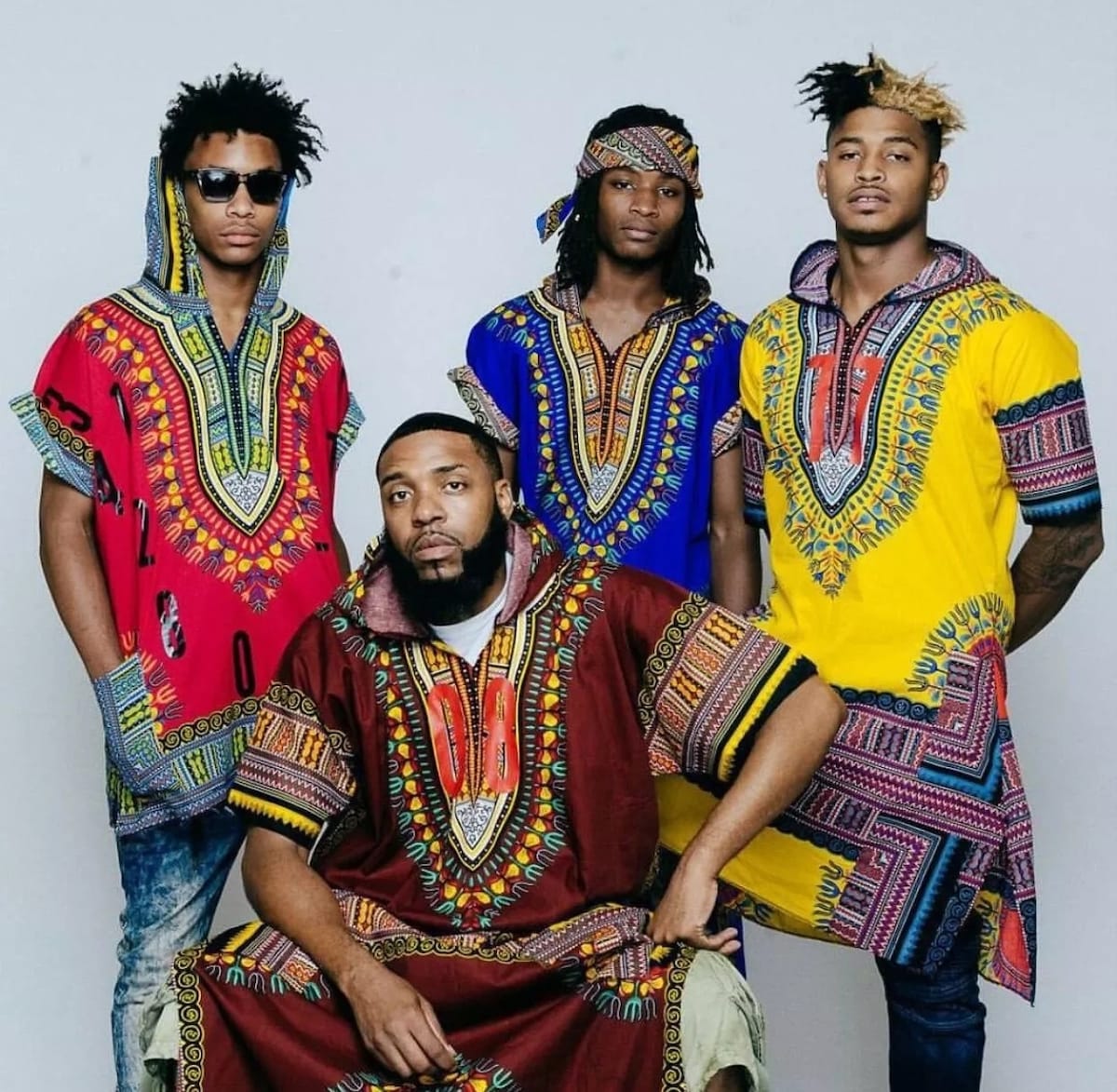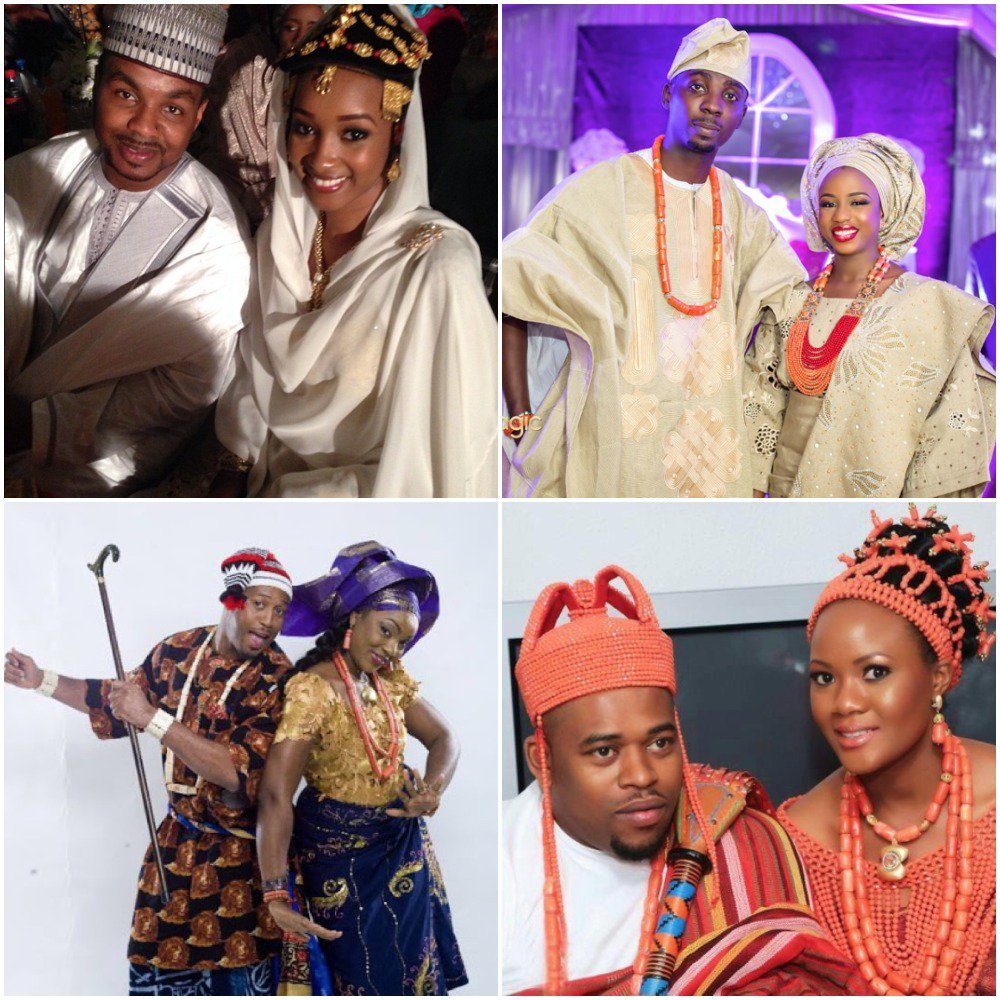Traditional Nigerian culture is a vivid and intricate mosaic of history, diversity, and customs that define Africa's most populous nation. With over 250 ethnic groups, Nigeria provides an unparalleled window into the depth and richness of African heritage. This article delves into the cultural nuances that shape Nigeria, from its traditional attire to its unique festivals and enduring values.
Nigeria's cultural diversity is one of its most remarkable characteristics. The traditions, languages, and customs of its people differ significantly across regions, forming a dynamic and vibrant cultural landscape. This diversity is what makes traditional Nigerian culture so captivating and worth exploring, offering a deeper understanding of the nation's identity.
As we embark on this journey through the article, you will uncover the key elements of Nigerian traditions, including food, music, dance, and more. Whether you are a traveler, researcher, or simply curious about the world, this guide will provide valuable insights into the heart of Nigeria's cultural essence.
Table of Contents
- The Legacy of Nigerian Cultural Heritage
- The Linguistic Richness of Traditional Nigerian Culture
- Traditional Attire and Its Symbolism
- Nigerian Cuisine: A Symphony of Flavors
- Music and Dance in Nigerian Traditions
- Festivals That Celebrate Traditional Nigerian Culture
- Family Values in Nigerian Society
- Religious Practices and Beliefs in Nigerian Traditions
- Art and Crafts: Expressions of Nigerian Creativity
- Modern Influences on Traditional Nigerian Culture
The Legacy of Nigerian Cultural Heritage
Historical Context
Nigeria's cultural heritage stretches back thousands of years, with evidence of early human settlements in the region. The Nok civilization, which thrived from approximately 1000 BCE to 300 CE, is one of the earliest known cultures in Nigeria. Renowned for its terracotta sculptures, the Nok civilization set the stage for the artistic traditions that flourished in subsequent centuries.
Over the centuries, various kingdoms and empires arose, including the Benin Empire, the Oyo Empire, and the Kanem-Bornu Empire. Each of these entities contributed to the development of unique cultural practices and traditions that continue to influence contemporary Nigerian culture.
Cultural Pluralism
Nigeria is home to over 250 ethnic groups, with the Hausa, Igbo, and Yoruba being the largest. This diversity is reflected in the country's languages, customs, and traditions. Each ethnic group has its own distinct cultural identity, contributing to the rich tapestry that is traditional Nigerian culture.
- The Lemont Restaurant Pittsburgh
- Alice Braga Moraes
- Who Playsally In The Nightmare Before Christmas
- Power Outage Entergy
- How Old Jack Black
The Linguistic Richness of Traditional Nigerian Culture
Language plays a pivotal role in preserving and transmitting cultural heritage. Nigeria boasts over 500 languages, making it one of the most linguistically diverse countries globally. Some of the major languages include Hausa, Yoruba, Igbo, Edo, and Fulfulde.
Although English serves as the official language, local languages remain an integral part of daily life and cultural expression. Many Nigerians are bilingual or multilingual, speaking both their native tongue and English. This linguistic diversity fosters a unique cultural dynamic that enriches traditional Nigerian culture.
Traditional Attire and Its Symbolism
Traditional Nigerian clothing is celebrated for its vibrant colors, intricate patterns, and rich textures. Different regions and ethnic groups have their own distinctive styles of dress, each imbued with symbolic meanings and cultural significance.
Iconic Traditional Garments
- Buba and Wrapper: A popular outfit among women, consisting of a loose-fitting blouse (buba) and a long skirt (wrapper), symbolizing elegance and grace.
- Aso Oke: Handwoven fabric used to create elaborate gowns and robes, often worn during special occasions to signify prestige and tradition.
- Dashiki: A colorful garment worn by men, featuring elaborate embroidery and patterns, representing cultural pride and identity.
These traditional garments not only reflect personal style but also serve as symbols of identity and cultural pride, connecting Nigerians to their heritage.
Nigerian Cuisine: A Symphony of Flavors
Nigerian cuisine is a delightful fusion of flavors, spices, and ingredients that highlight the country's agricultural abundance. Staples such as yams, cassava, maize, and plantains form the foundation of many traditional dishes, while spices like chili, ginger, and curry add depth and complexity to the flavors.
Essential Nigerian Dishes
- Jollof Rice: A flavorful rice dish cooked with tomatoes, onions, and spices, often served at parties and gatherings, symbolizing hospitality and celebration.
- Egusi Soup: A hearty soup made from melon seeds, leafy greens, and meat or fish, representing the richness of Nigerian culinary traditions.
- Akara: Deep-fried bean cakes often enjoyed as a breakfast item or snack, showcasing the simplicity and versatility of Nigerian cuisine.
Nigerian cuisine is not only delicious but also nutritious, incorporating a variety of vegetables, proteins, and grains that promote a balanced diet and well-being.
Music and Dance in Nigerian Traditions
Music and dance are integral components of traditional Nigerian culture, serving as vehicles for storytelling, celebration, and spiritual expression. From the rhythmic beats of the talking drum to the graceful movements of traditional dancers, Nigerian music and dance are vibrant and captivating.
Traditional Musical Instruments
- Talking Drum: A percussion instrument that mimics the tonal patterns of human speech, used to convey messages and accompany storytelling.
- Flutes and Trumpets: Instruments used in ceremonial music and to accompany dances, adding depth and emotion to cultural performances.
- Gong: A percussion instrument often played during festivals and rituals, symbolizing the rhythm of life and community.
These instruments, combined with vocal harmonies and intricate rhythms, create a rich auditory experience that reflects the depth and complexity of Nigerian cultural traditions.
Festivals That Celebrate Traditional Nigerian Culture
Festivals are a vital aspect of traditional Nigerian culture, providing opportunities for communities to come together and celebrate their heritage. These events often feature music, dance, traditional attire, and feasting, creating a lively and festive atmosphere.
Notable Nigerian Festivals
- Eyo Festival: A traditional masquerade festival held in Lagos, symbolizing the transition from one era to another, showcasing the city's cultural roots.
- New Yam Festival: Celebrated by the Igbo people to mark the harvest season and the beginning of the new agricultural cycle, emphasizing gratitude and renewal.
- Sallah Festival: A Muslim festival that involves prayer, feasting, and wearing traditional attire, highlighting the spiritual and communal aspects of Nigerian life.
These festivals not only preserve cultural traditions but also foster a sense of community and belonging among participants, strengthening the bonds that define Nigerian society.
Family Values in Nigerian Society
Family lies at the heart of traditional Nigerian culture, with a strong emphasis on respect, loyalty, and responsibility. Extended families often live together, creating a supportive network that nurtures both the young and the elderly.
Key family values in Nigerian society include:
- Respect for Elders: Elders are revered for their wisdom and experience, playing a crucial role in family decision-making and guidance.
- Collectivism: The well-being of the family unit is prioritized over individual needs and desires, emphasizing unity and cooperation.
- Education: Emphasis is placed on providing quality education for children, as it is seen as a pathway to success, prosperity, and societal advancement.
These values contribute to the strong social fabric that defines traditional Nigerian culture, fostering resilience and cohesion within communities.
Religious Practices and Beliefs in Nigerian Traditions
Religion plays a significant role in shaping traditional Nigerian culture, with Christianity, Islam, and indigenous beliefs coexisting harmoniously in many communities. Each religion brings its own set of traditions, rituals, and practices that enrich the cultural landscape.
Indigenous Spiritual Practices
Traditional religions in Nigeria often involve ancestor worship, spirit veneration, and the use of divination to communicate with the spiritual realm. These practices are deeply rooted in the cultural identity of many ethnic groups and continue to influence modern Nigerian society.
By embracing diversity in religious practices, Nigerians have created a culture of tolerance and mutual respect, fostering unity in diversity and promoting peaceful coexistence.
Art and Crafts: Expressions of Nigerian Creativity
Nigerian art and crafts are celebrated for their beauty, craftsmanship, and cultural significance. From intricate beadwork to carved wooden sculptures, Nigerian artisans create works of art that reflect the country's rich cultural heritage.
Popular Art Forms
- Textiles: Handwoven fabrics such as aso oke and adire are celebrated for their vibrant colors and intricate patterns, symbolizing tradition and creativity.
- Pottery: Traditional pottery is crafted using techniques passed down through generations, often used in ceremonial and everyday settings, showcasing the enduring skills of Nigerian artisans.
- Sculpture: Wood and stone carvings depict mythical figures, ancestral spirits, and everyday life, showcasing the artistic talent and cultural narratives of Nigerian craftsmen.
These art forms not only serve as decorative items but also as expressions of cultural identity and creativity, connecting Nigerians to their past and inspiring future generations.
Modern Influences on Traditional Nigerian Culture
As Nigeria continues to modernize, traditional cultural practices are evolving to adapt to contemporary lifestyles. Urbanization, globalization, and technological advancements have introduced new influences that impact how Nigerians express their cultural identity.
Despite these changes, many Nigerians remain committed to preserving their cultural heritage. Efforts to document and promote traditional practices, coupled with a growing interest in cultural tourism, ensure that the richness of traditional Nigerian culture endures for future generations.
Conclusion
Traditional Nigerian culture is a vibrant and dynamic tapestry of history, diversity, and customs that define Africa's most populous nation. From its linguistic richness and traditional attire to its cuisine, music, and festivals, Nigeria offers a fascinating glimpse into the depth and richness of African heritage.
To deepen your understanding of traditional Nigerian culture, we encourage you to explore the topics discussed in this article further. Share your thoughts and experiences in the comments below, and don't hesitate to explore other articles on our site to discover more about the world's diverse cultures. Together, let's celebrate and preserve the cultural treasures that make our world a more colorful and interconnected place.



Detail Author:
- Name : Marlon Rippin
- Username : ron.lebsack
- Email : kschimmel@hotmail.com
- Birthdate : 1979-05-21
- Address : 91465 Neil Brook Apt. 946 Raynorshire, DE 96506
- Phone : +1-480-582-1919
- Company : Stroman Ltd
- Job : Archivist
- Bio : Earum odit recusandae aut reprehenderit. Odit velit ex velit voluptatem tempore id. Quo quia sequi ipsum. Eius sunt sint eveniet voluptatem aut nemo ea sed.
Socials
linkedin:
- url : https://linkedin.com/in/reicherte
- username : reicherte
- bio : Nostrum qui dolores voluptate ut.
- followers : 2593
- following : 1616
facebook:
- url : https://facebook.com/elinor_reichert
- username : elinor_reichert
- bio : In labore nihil sapiente. Dolores ad qui omnis inventore deleniti repudiandae.
- followers : 5880
- following : 460